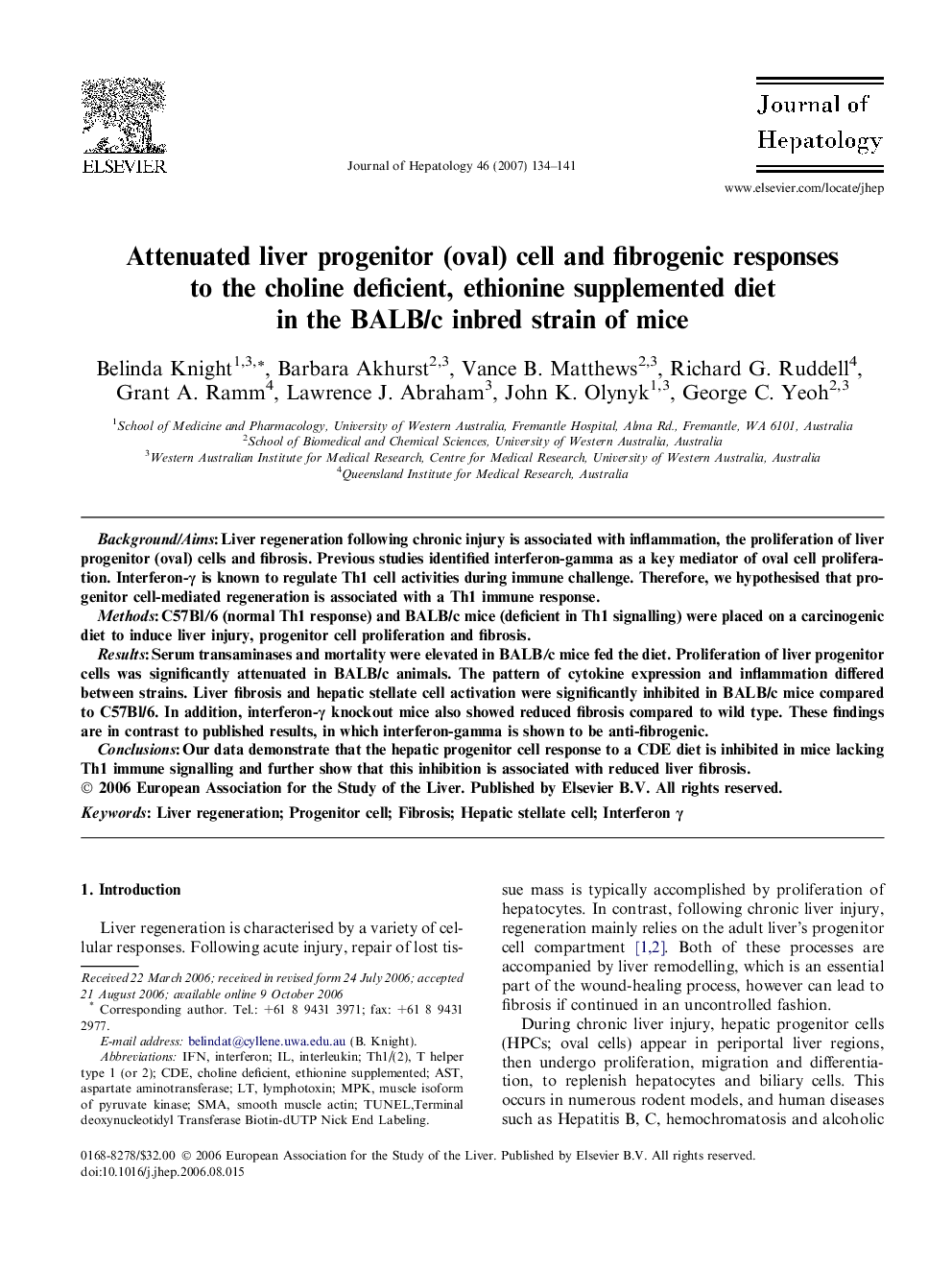| Article ID | Journal | Published Year | Pages | File Type |
|---|---|---|---|---|
| 3315045 | Journal of Hepatology | 2007 | 8 Pages |
Background/AimsLiver regeneration following chronic injury is associated with inflammation, the proliferation of liver progenitor (oval) cells and fibrosis. Previous studies identified interferon-gamma as a key mediator of oval cell proliferation. Interferon-γ is known to regulate Th1 cell activities during immune challenge. Therefore, we hypothesised that progenitor cell-mediated regeneration is associated with a Th1 immune response.MethodsC57Bl/6 (normal Th1 response) and BALB/c mice (deficient in Th1 signalling) were placed on a carcinogenic diet to induce liver injury, progenitor cell proliferation and fibrosis.ResultsSerum transaminases and mortality were elevated in BALB/c mice fed the diet. Proliferation of liver progenitor cells was significantly attenuated in BALB/c animals. The pattern of cytokine expression and inflammation differed between strains. Liver fibrosis and hepatic stellate cell activation were significantly inhibited in BALB/c mice compared to C57Bl/6. In addition, interferon-γ knockout mice also showed reduced fibrosis compared to wild type. These findings are in contrast to published results, in which interferon-gamma is shown to be anti-fibrogenic.ConclusionsOur data demonstrate that the hepatic progenitor cell response to a CDE diet is inhibited in mice lacking Th1 immune signalling and further show that this inhibition is associated with reduced liver fibrosis.
